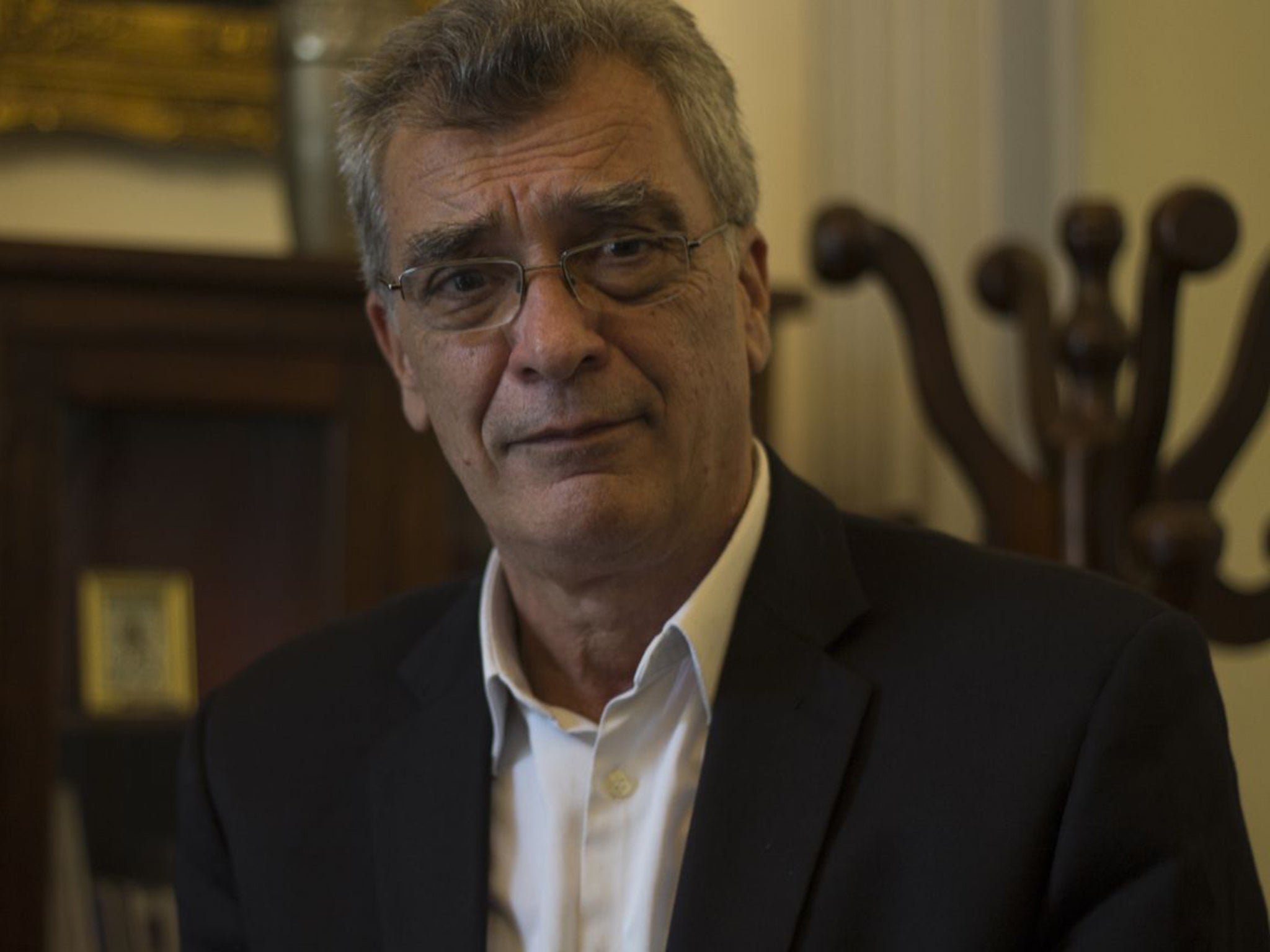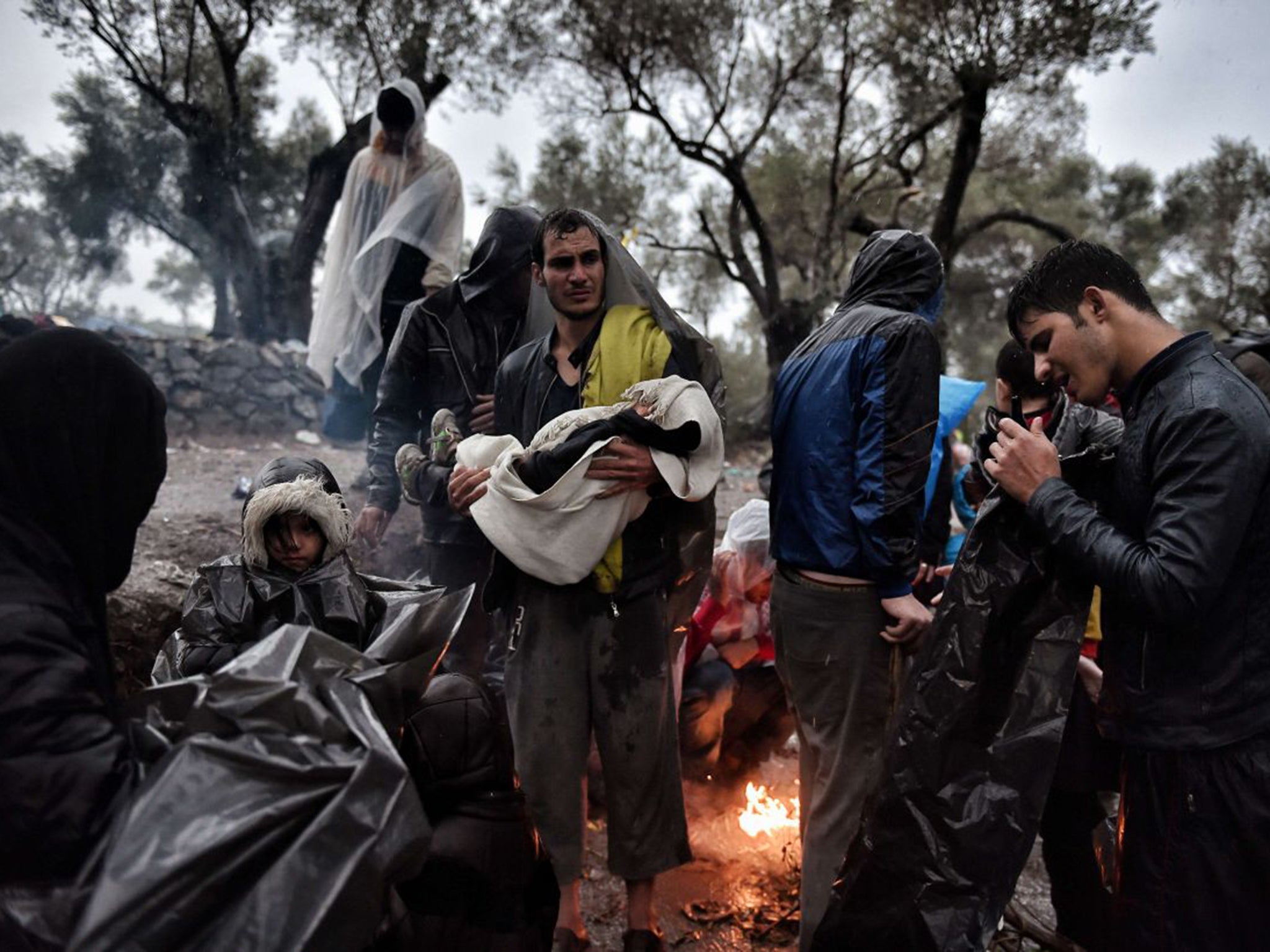Lesbos mayor Spyridon Galinos: How I am coping with up to 7,000 new refugees each day
'We have not received any financial support from the European Union whatsoever'

Spyridon Galinos has more on his plate than most European mayors. For one thing, in the past few days a family of Syrian refugees has camped on the steps of his office in the port city of Mytilene, sheltering from the torrential rain that has battered the island.
They have travelled from northern Syria, across Turkey and by rubber dinghy to the north shore of Lesbos. His island has a population of 80,000 people, but is seeing up to 7,000 refugees arrive each day from the Turkish coast just 10 miles away. UNHCR officials quietly admit that there are “considerably more” than the 16,000 refugees who are officially recorded as being on the island.
From finding space to bury the growing number of drowned refugees to fighting with the Athens government to provide more funding for shelters, the 63-year-old mayor’s working days are being devoured by the crisis.

“We have not received any financial support from the European Union whatsoever,” he told The Independent on Sunday. “What we do, we do from our own budget.”
Mr Galinos, the son of a hero of the Greek resistance against Nazi occupation, is not just demanding external funding, though; from his grand Ataturk-era office he is proposing European-wide solutions, including a plan to resettle refugees in the EU direct from Turkey, as well as launching a bid for the island to be named the European Capital of Culture in 2021.
“We are currently filing the application as we need to show the rest of Europe what we have learned and what refugees have to offer us,” he said. “We believe the biggest problem in Europe now is xenophobia and the fear of foreigners. We want to show the rest of the European Union that it has nothing to fear and that if we, as a small island, can accommodate refugees, they have nothing to fear.”
The mayor, who was elected by island residents last year with a strong mandate to solve the refugee crisis, admits it’s “brave” approach for an island now associated with drownings, rioting refugees and squalid camps to make a cultural bid, but he says the community needs to look forward. “We have nothing to fear any more; the only fear we had was that the sky would fall on our heads, but that has already happened,” he said, paraphrasing a quote from Asterix.
But the situation is not without unexpected problems, beyond the need for more showers, toilets and winter shelters. “The plastic [from abandoned life jackets] and sanitation issue here is an environmental bomb,” Mr Galinos said. “We desperately need special equipment to keep the island clean, and a plastic recycling plant.”
Mr Galinos, the former secretary of the populist, right-wing Independent Greeks party, has been praised by the UNHCR and volunteer groups for his leadership over the crisis and welcomes every NGO or volunteer that arrives on the island personally. “He is respected here,” said Manal Shehade, a project manager on the island for IsraAid, a non-governmental Israeli charity that runs trauma therapy for refugees on the island. “It would be easy to play on fears but he leads an island that is incredibly welcoming to refugees.”
He has also impressed Yvette Cooper, the MP who chair’s Labour’s refugee taskforce. She met Mr Galinos on Lesbos last week and later said: “The mayor’s leadership is shaming Europe.”
That leadership has seen him write to EU leaders calling for an “immediate solution”. His proposals include more registration centres and humanitarian aid on Lesbos, a crackdown on the people smugglers, and “safe and legal” direct entry of refugees into Europe from Turkey and the Middle East. The last is politically explosive for EU nations, but UNHCR officials on the island say it is the “only long-term solution” to the crisis.
While rain and thunderstorms in the past few days have slowed arrivals a little, the top UNHCR official on the island told The IoS he had seen no major sign of a slowdown in refugee numbers.
Roberto Mignone, the head of the emergency response on the island for the UNHCR, said: “In the past few days the flow of refugees has been increasing to up to 7,000 refugees a day. It’s possible the people smugglers are trying to use the window of opportunity before winter and to capitalise on the fear that borders will close. It’s a kind of stampede.”
Join our commenting forum
Join thought-provoking conversations, follow other Independent readers and see their replies
Comments